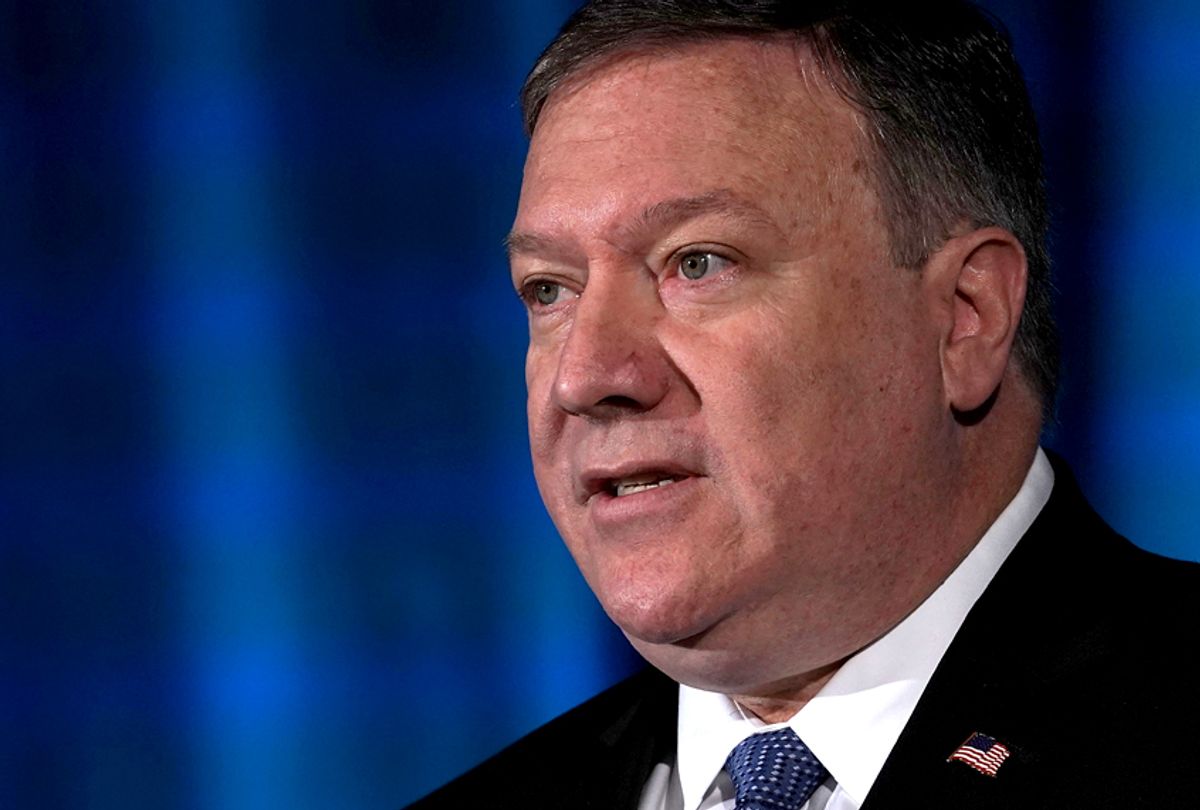When you are on the autism spectrum (as this writer is), you get used to hearing about people with the condition struggling to be given a fair shake. Autism is so stigmatized that many people oppose vaccinating their children because of unsubstantiated fears that it may cause the condition. Not only is that junk science, it assumes that spreading epidemic disease and risking death is preferable to life on the autism spectrum.
Apparently the U.S. State Department has decided to be part of the problem rather than part of the solution.
Two excerpts from a recent report in Foreign Policy will tell you pretty much everything you need to know. First there is this:
State Department diplomats who have children with disabilities and mental health issues say U.S. Secretary of State Mike Pompeo has been ignoring their pleas for help in a struggle they’ve been waging for more than a year now against the erosion of their medical and education benefits.
A group of foreign service officers representing some 1,400 families sent Pompeo a letter in May saying the State Department had slashed benefit options and funding for children with special needs.
Then, later in the same article:
As U.S. diplomats travel to assignments around the world, the State Department’s medical bureau ensures they and their family members are healthy enough to live in the assigned country. In the case of some 1,400 families with children with special needs, the bureau is also in charge of ensuring adequate care is available in the assigned country.
But an investigation by FP in April found that, starting in 2015, the medical office has been arbitrarily cutting funding for children with autism, attention deficit hyperactivity disorder (ADHD), or other special needs or mental health issues. It has also revoked the medical clearances for some children that are required for foreign posting, forcing some diplomats out of their jobs because of their children’s special needs.
The investigation was based on over two dozen interviews with foreign service officers and their family members, who each had their own stories about how the department separated families and derailed careers.
The Foreign Policy piece also reported that some State Department officials have been forced to pay back benefits given to them for their special needs children that had been approved years earlier. One official familiar with the situation told Foreign Policy, "They’re saying, ‘Oh, we’re sorry we gave you that money we shouldn’t have given you years ago. You owe us $40,000.'"
Let's unpack this for a second.
We can start with how this story looks for Secretary of State Mike Pompeo, who has been on the job just a few months. In his defense, this unfortunate policy has been in place since the tenure of John Kerry, Barack Obama's second secretary of state. So while neither Pompeo nor his immediate predecessor, Rex Tillerson, initiated the policy, they have done nothing to end it.
What's more, Pompeo is currently under fire for promoting a State Department appointee who is suspected of retaliating against career staffers who may have expressed negative opinions about President Donald Trump. There are also questions about whether Pompeo has done anything to punish other Trump appointees who've engaged in similar kinds of retaliation.
READ MORE: Is a senior Air Force general using his power to spread far-right Christian nationalism?
In other words, Pompeo is already being accused of running the State Department's personnel matters in a way that looks slapdash at best, and at worst is brazenly partisan. If he wants to counter that impression by seeming like he can be humane and reasonable, this would be a good place to start.
The other (and far more important) dimension to this, of course, is the fact that both parents and children are suffering because of a State Department policy that is discriminatory in effect, if not necessarily in intent.
One should always be careful in making accusations about "discrimination" when dealing with public policy, at least when definite proof is absent. The State Department's actions may be motivated by a desire to pinch pennies or some absurd national security concern that would never occur to more rational minds or by some other factor entirely. Yet when the needs of children who have unique psychological situations — I hesitate to say "disability," since autism is not always a disability — are disregarded, the inevitable effect is that it will be more difficult for them to become healthy, happy and productive members of society.
Nor should this concern be limited to children who have autism. The Foreign Policy report makes it clear that children with conditions like ADHD are also being singled out in this way. That sure makes it seem like part of the issue is the stigma surrounding mental disability. Even if the motive for cutting funds and forcing parents to reimburse the agency isn't motivated by such an animus, a culture that can justify doing such things for a child with a mental handicap -- but not one with a physical handicap -- is a culture that has some deeply problematic views about mental health issues.



Shares